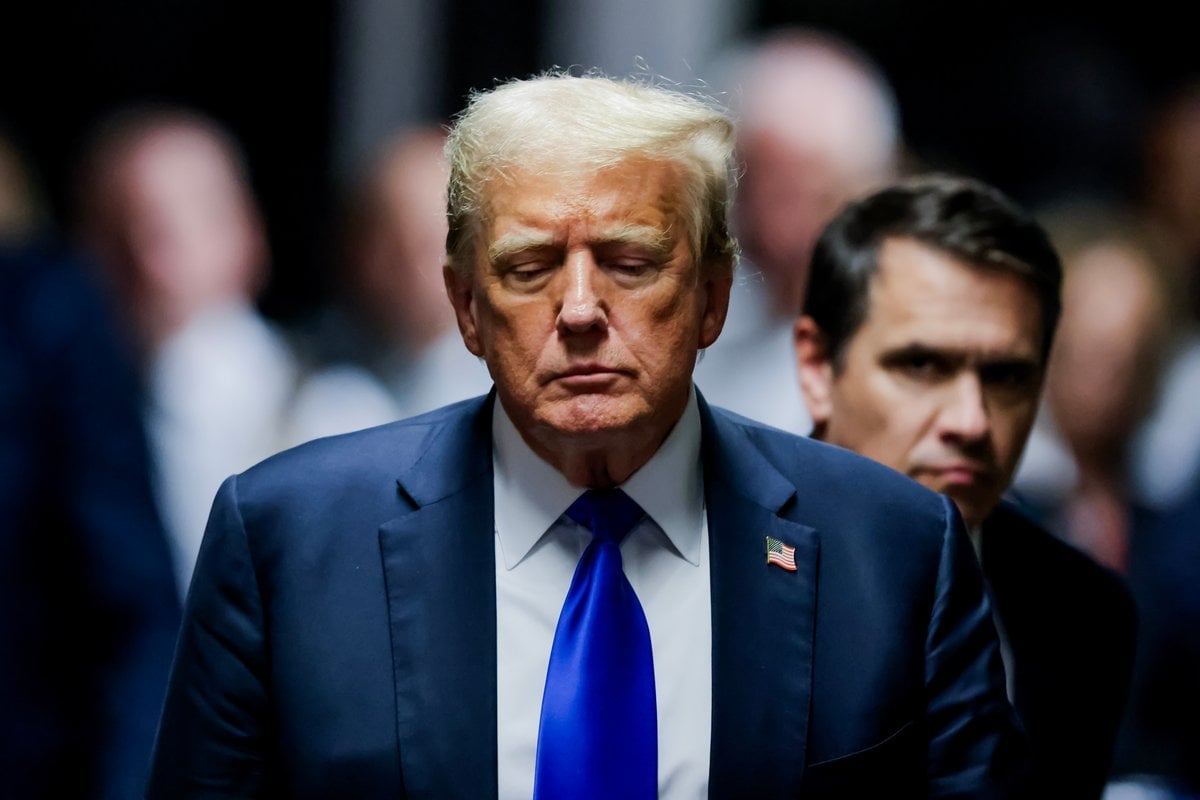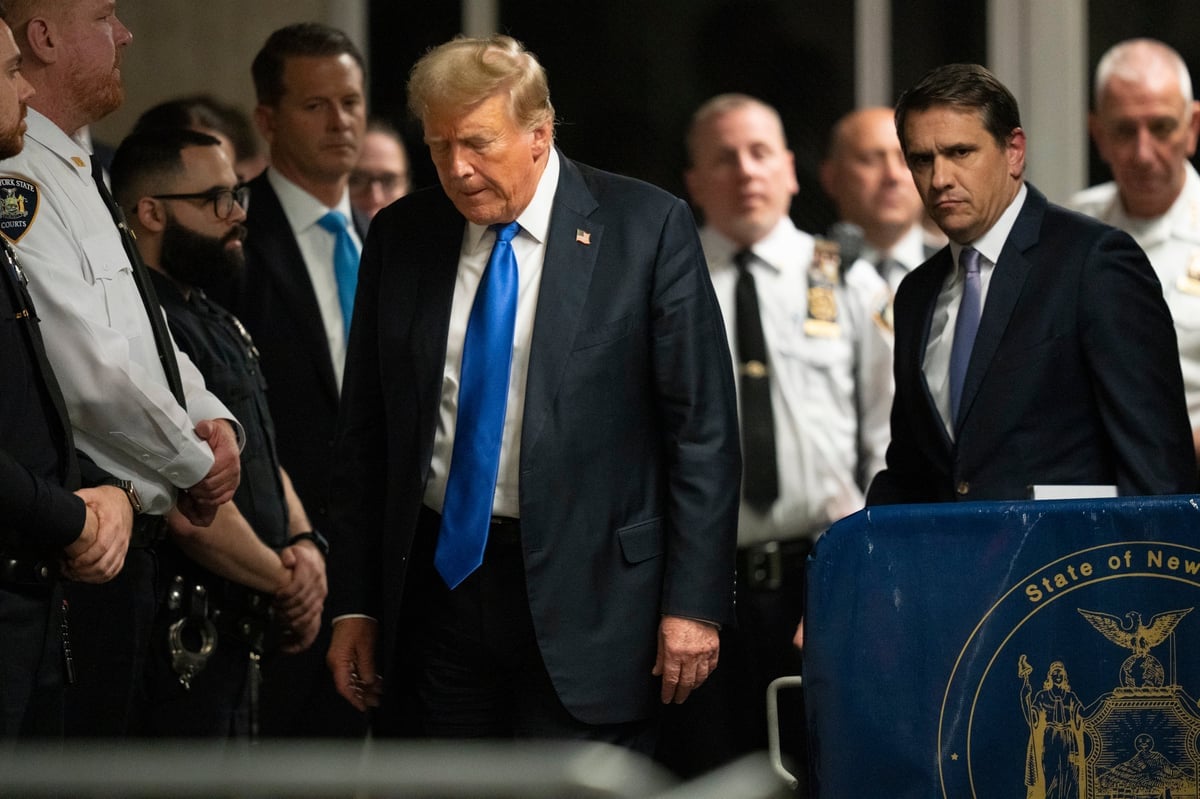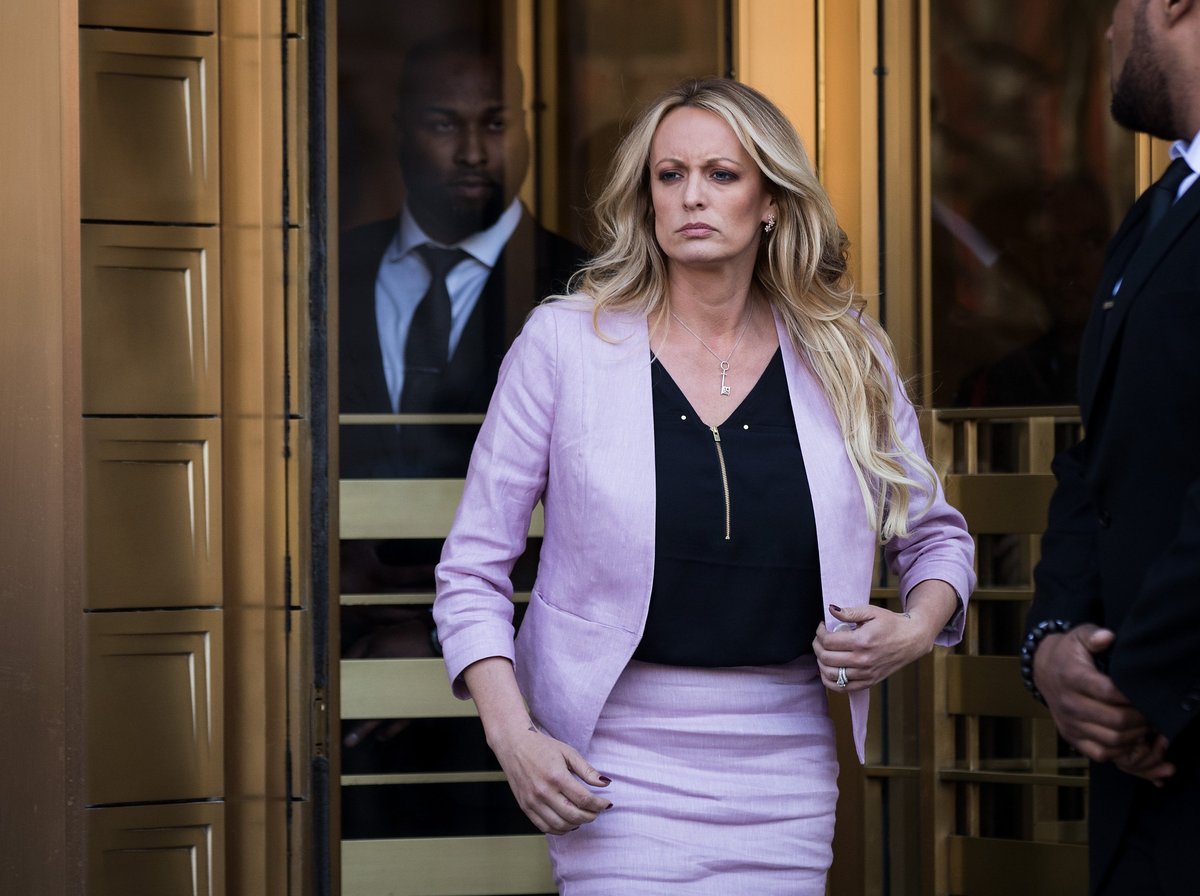
Donald Trump has become the first US president to be convicted of a crime after a New York jury found him guilty of falsifying documents to cover up a payment to silence a porn star ahead of the 2016 election.
After deliberations over two days, the 12-member jury announced on Thursday it had found Trump guilty on all 34 counts he faced. Unanimity was required for any verdict.
Trump watched the jurors dispassionately as they were polled to confirm the guilty verdict.
 Trump exiting the court after being found guilty. Image: Getty
Trump exiting the court after being found guilty. Image: Getty


Top Comments
Sounds like a TV sitcom plotline. Commander in Chains.